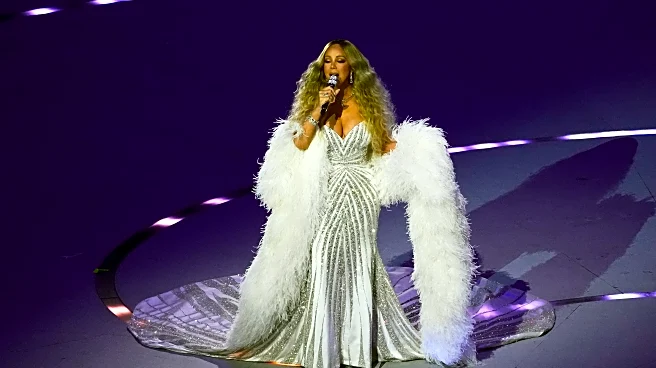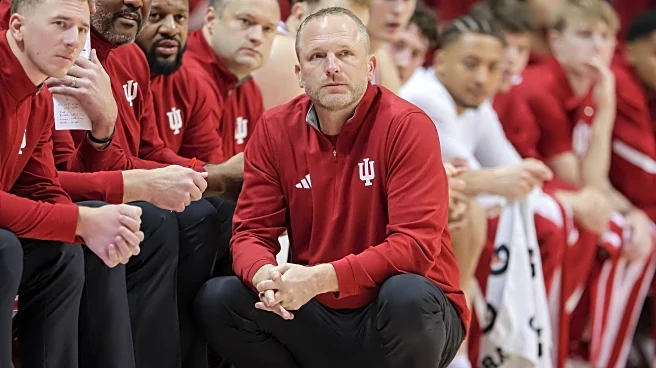Rapid Read • 8 min read
Berkshire Hathaway, led by Warren Buffett, announced a significant $3.76 billion writedown on its investment in Kraft Heinz during the second quarter. This decision reflects the challenges faced by the food company, which is considering strategic alternatives, including a potential breakup. The writedown contributed to a 59% drop in Berkshire's overall net income, with operating profits also declining by 4% due to reduced insurance underwriting premiums. The conglomerate's cautious approach to market valuations is evident as it reported a near-record $344.1 billion cash stake and continued to sell more stocks than it purchased for the 11th consecutive quarter. Analysts have expressed concerns over Berkshire's lackluster results and the absence of stock buybacks, which have contributed to its recent share underperformance.
AD
The writedown of Kraft Heinz highlights the broader challenges within the consumer goods sector, as companies face shifting consumer preferences towards healthier and private-label alternatives. Berkshire's financial results reflect the impact of economic uncertainties, including trade policies and tariffs, which have affected revenue across its consumer businesses. The decline in Berkshire's stock price, following Buffett's announcement of his impending departure, underscores the market's apprehension about the company's future leadership and strategic direction. The transition to Vice Chairman Greg Abel as CEO may influence investor confidence and the company's ability to navigate economic headwinds.
Berkshire Hathaway is evaluating the implications of the One Big Beautiful Bill Act, recently signed by President Trump, on its renewable energy and technology-neutral projects. This legislative development could affect the company's strategic investments in the energy sector. Additionally, analysts speculate that Berkshire's BNSF unit might pursue acquisitions, such as CSX, to expand its transcontinental railroad operations. The company's focus on improving underwriting quality and technology in its insurance business, particularly Geico, may also shape its future profitability amid rising tariffs and potential increases in auto parts costs.
The writedown of Kraft Heinz not only reflects financial challenges but also raises questions about the sustainability of traditional consumer brands in a rapidly evolving market. Berkshire's cautious investment strategy and significant cash reserves suggest a potential shift towards more conservative financial management, which could influence its long-term growth trajectory. The impending leadership transition at Berkshire may also lead to changes in corporate culture and strategic priorities, impacting its diverse portfolio of businesses.
AD
More Stories You Might Enjoy














